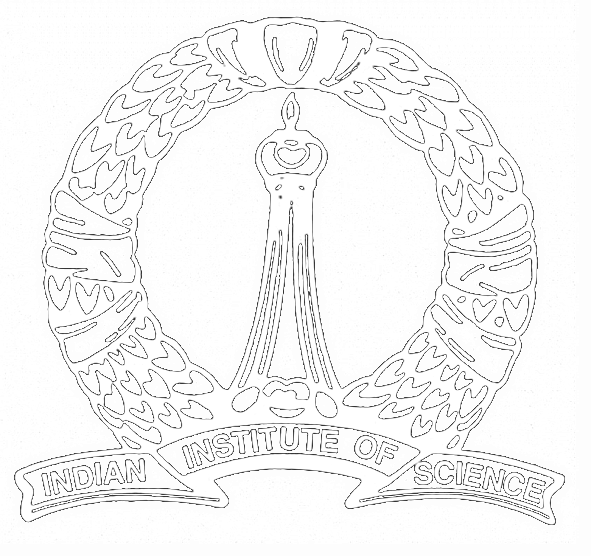We cordially invite you to an Algebra Symposium at IISc. The organizers are R. Venkatesh and Apoorva Khare.
Date: 12th February, 2020 (Wednesday)
Venue: Lecture Hall-1, Department of Mathematics, IISc
| Time | Speaker | Title |
|---|---|---|
| 9:00 am | Amalendu Krishna | An application of $K$-theory in class field theory |
| 10:00 am | Tea | |
| 10:15 am | Radhika Ganapathy | Congruences of parahoric group schemes |
| 11:15 am | Tea | |
| 11:30 am | Shaunak Deo | Deformations of Galois representations |
| 12:30 pm | Lunch | |
| 2:30 pm | Mahesh Kakde | On Hilbert’s 12th problem and Brumer-Stark conjecture |
| 3:30 pm | Tea | |
| 4:00 pm | Uri Onn | Representation growth of arithmetic lattices |
| 5:00 pm | High Tea |
Abstracts
Lecture 1
Speaker: Amalendu Krishna (TIFR, Mumbai)
Title: An application of $K$-theory in class field theory
Abstract: I will show how we can use algebraic $K$-theory to solve a higher dimensional class field theory problem. Time permitting, I will give an application to the solution of a conjecture of Deligne on $\ell$-adic local systems.
Lecture 2
Speaker: Radhika Ganapathy (IISc Mathematics)
Title: Congruences of parahoric group schemes
Abstract: Let $F$ be a non-archimedean local field and let $T$ be a torus over $F$. With $\mathcal{T}^{N R}$ denoting the Neron-Raynaud model of $T$, a result of Chai and Yu asserts that the model $\mathcal{T}^{N R} \times_{\mathfrak{O}_F} \mathfrak{O}_F / \mathfrak{p}_F^m$ is canonically determined by $({\rm Tr}_l(F), \Lambda)$ for $l \gg m$, where $({\rm Tr}_l(F) = (\mathfrak{O}_F / \mathfrak{p}_F^l, \mathfrak{p}_F / \mathfrak{p}_F^{l+1}, \epsilon)$ with $\epsilon$ denoting the natural projection of $\mathfrak{p}_F / \mathfrak{p}_F^{l+1}$ on $\mathfrak{p}_F / \mathfrak{p}_F^l$, and $\Lambda := X_*(T)$. In this talk we will discuss the analogous question for parahoric group schemes attached to facets in the Bruhat-Tits building of a connected reductive group over $F$, and some applications of this result towards studying the representation theory of $p$-adic groups over close local fields.
Lecture 3
Speaker: Shaunak Deo (TIFR, Mumbai)
Title: Deformations of Galois representations
Abstract: One of the main themes of deformation theory of Galois representations is to study families of Galois representations obtained by interpolating various Galois representations having certain prescribed properties. In this talk, I will first review some basic facts and results of deformation theory of Galois representations. Then I will describe the basic anatomy of theorems comparing various universal deformation rings with appropriate Hecke algebras (which are popularly known as ‘R=T’ theorems in the literature and are important from Number theoretic point of view). In the second half of the talk, I will describe some of my own results in which establishing an R=T theorem has played a crucial role.
Lecture 4
Speaker: Mahesh Kakde (IISc Mathematics)
Title: On Hilbert’s 12th problem and Brumer-Stark conjecture
Abstract: In this talk I will state Hilbert’s 12th problem (explicit class field theory) and give a $p$-adic solution for totally real fields. This involves proving the Brumer-Stark conjecture and an integral refinement of the Gross-Stark conjecture. This is a joint work with Samit Dasgupta.
Lecture 5
Speaker: Uri Onn (Australian National University, Canberra, Australia)
Title: Representation growth of arithmetic lattices
Abstract: Let $G$ be a group and let $r(n,G)$ denote the number of equivalence classes of $n$-dimensional complex irreducible representations of $G$. Representation growth is a branch of asymptotic group theory that studies the asymptotic and arithmetic properties of the sequences $(r(n,G))$. In 2008 Larsen and Lubotzky conjectured that all irreducible lattices in a high rank semisimple Lie group have the same degree of polynomial representation growth. In this talk I will explain the conjecture and describe the ideas around the proof of a variant of the conjecture: if the lattices have polynomial representation growth (which is known to be true in most cases) then they have the same degree of polynomial growth. This is a joint work with Nir Avni, Benjamin Klopsch and Christopher Voll.
